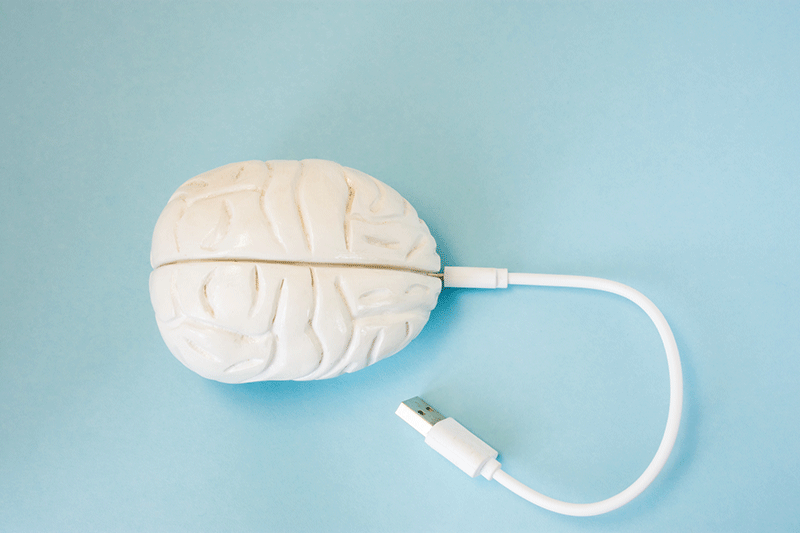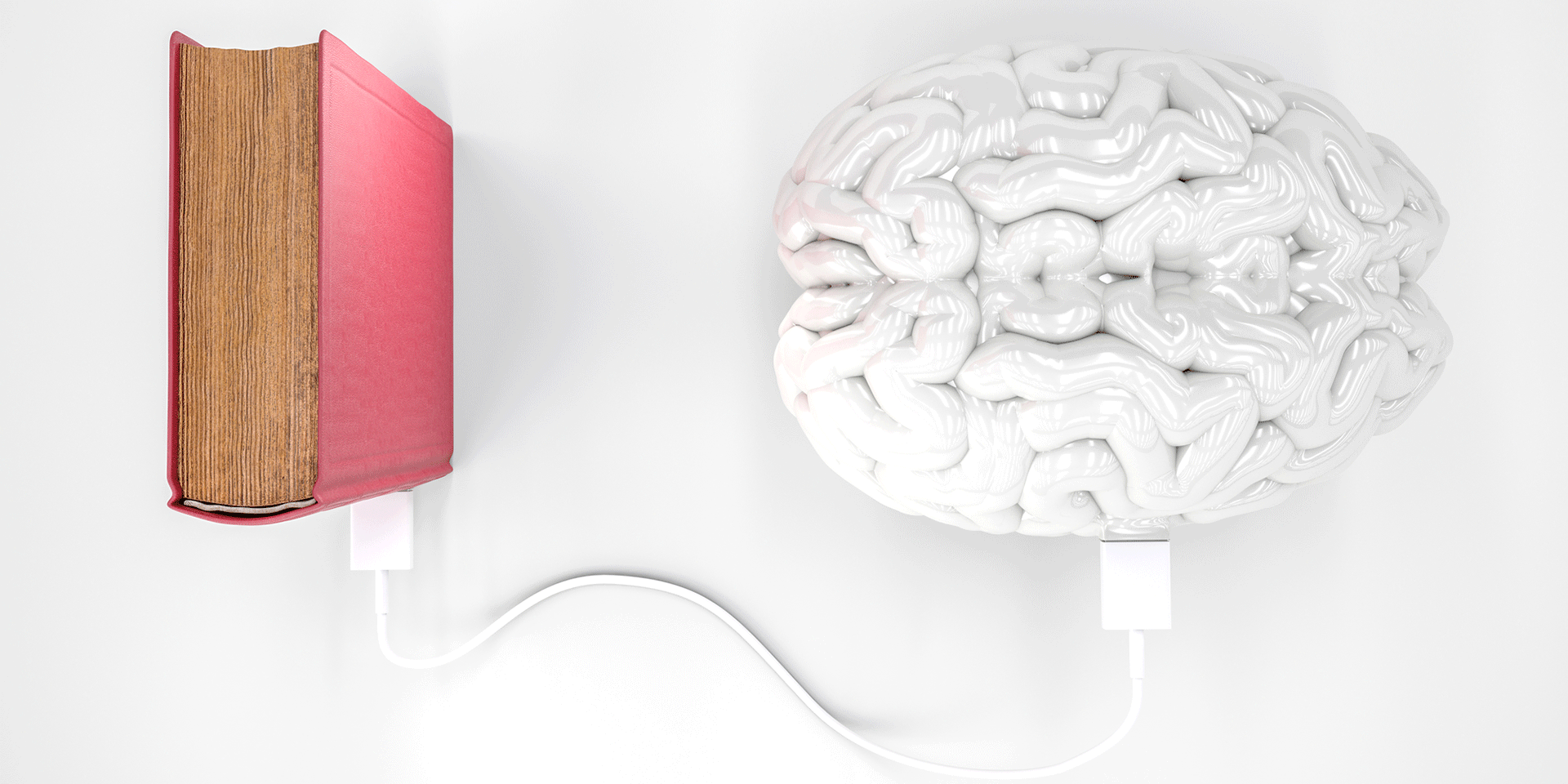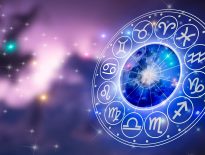In the movie A Beautiful Mind, there is a scene in which the brilliant mathematician John Nash reveals how he manages to function, despite the schizophrenia that has tormented him for years. “I still see things that are not there,” said Nash, “I just choose not to acknowledge them. Like a diet of the mind, I just choose not to indulge certain appetites.”
I have a strong dislike towards assessments that begin with “We live in a world which…”, but I have to say it: our world—the world of those who are sufficiently well-off financially so as to be able to think about things a certain way—has developed a real obsession with diets. And I have at least three arguments (see the list below) which prove that this is not an unfounded statement.
Still, we—the same ones who weigh every crumb of bread and grit our teeth fiercely in the face of culinary temptations—sometimes ignore without much remorse the food with which we feed our minds every day. The trouble is that the junk food with which we fill our minds might affect our lives even more than a culinary extravaganza. The only thing is that we do not pay attention to this, so we don’t realise that our mental diet is based on everything we would condemn, if it were to constitute the basis of our food diet. Let me explain.
- If you belong to the millennial generation, the likelihood is that in your circle of friends there is at least one person who bears the traits of a “food evangelist”. He’s the friend who has radically changed his lifestyle—with an emphasis on “radically” because anything less than radical is a change that is not really worth anyone’s attention. She’s the friend who won’t touch certain foods at all cost because she considers them “unhealthy”. But if you ask her what her choice is based on, you will come to realise that her arguments come from such questionable sources, that the interdiction she has owned up to is more like a superstition than a logical deduction. Do not hurry to point your finger at your friends who do not stuff themselves with potato chips just for the sake of it, or towards your girlfriends who have sworn not to drown their sorrows in chocolate. This is not about them. I am talking about those friends who end up reading more about the ingredients of the foods they eat than when they spend time actually eating those foods; those who don’t eat little, but only eat a few things. And this makes them sick, because it leads to all sorts of deficiencies in their bodies. In fact, these friends suffer from what doctors call “orthorexia,” the obsession with eating only “clean”, “pure” or “healthy” foods, an obsession which is only enforced by diet patterns that carry an almost ritualistic weight.
- No less than 49% (so yes, almost half) of the respondents that were interviewed as part of an opinion poll conducted by Nielsen Global Health and Wellness, from about 60 countries, declared that they thought that they weighed more than they should. And another half (so, one in two) said that they were following a diet at the time of the interview.
- The weight loss foods, drinks and supplements market has boomed in recent years, and this is noticeable in any supermarket that has a section for “sugar-free”, “gluten-free”, and “no-sweeteners” foods. It doesn’t come as a surprise then, that a gigantic industry was built on the backs of people to work on their figure, an industry worth 214,7 billion dollars in 2016, and which is set to reach 442,3 billion by 2025.
The consensus amongst dieticians is that emotional eating causes issues. Food can relieve stress and ease pain through several mechanisms which, unfortunately, promote excess thus becoming damaging. One of the fewer known facts (less known than the fact that chocolate increases the release of dopamine) is the fact that whenever we eat beyond satiety—that is to say, when we eat after hunger is gone—our brains release beta-endorphins. They act as a pain killer, reduce inflammation and make us feel good or even a little bit numb.
That is why some people will instinctively go to the fridge whenever they are stressed, so that they may get that feeling of numbness, which would reduce the unpleasant feeling of pressure. Food can even alleviate pain if we eat something that we associate with pleasant memories—a soft slice of cake like our grandmother used to make, a hearty soup like the ones we find at home at our mother’s place, a country-like polenta meal and so on—because every time we eat that food we are transported back to a time when everything was going well.
Most of the time, food that is really healthy and nutritious does not get the most media exposure. When was the last time you saw potatoes, cabbage, cauliflower or spinach advertised? What we do get to see are endless commercials for potato chips, chocolate, and soda drinks. Which ones get you craving when you see them? Most likely it will be the food that you have been most exposed to, or more aggressively exposed to, the one you see all around (on TV, billboards, at the corner shop and in the most visible place in the store).
It’s much easier to buy ready-to-eat foods, with additives and concentrated fats, than it is to spend hours on end in the kitchen preparing a healthy and balanced meal, and that will take just as long to eat as does the processed food you did not cook. In this case, accessibility is what convinces us to make less healthy choices. It is more accessible to eat unhealthily and it is very convenient in the short run.
Moreover, the foods that we crave, regardless of the way we were educated by our parents and the inclinations or conditioning developed in childhood, are fatty foods and sweets. Craving fatty foods and sweets does not pertain to education, but rather to several factors amongst which are hormonal changes, mood swings and genetics. But if these cravings were to have the last word, irrespective of their motivation, most of us would end up eating only hamburgers and ice cream, which amass mountains and mountains of calories, without offering us the nutritious elements our bodies need.
Empty calories douse us with fat, but in theory, they make us happy because we will have satisfied our craving for something tasty. It’s a known fact that for it to function within normal parameters, the human body needs at least 40 essential nutrients, which is why a diet based only on a single type of food (such as the diet where the main food product is soy in its different forms; the cabbage weight-loss diet, the experimental potato-only diet) produces deficits that end up damaging our organs one by one, thus leading to the whole body becoming sick.
An equally damaging thing, whenever it becomes a habit, is the principle of selecting food based on its popularity. Many people choose to eat “gluten-free” foods, although they do not have a gluten intolerance, or they do so to lose weight, and some even to cure autism. What is more, experts say that the arbitrary decision to exclude gluten from our diet can be detrimental in the long run. Although giving up gluten is not catastrophic, withholding oneself from foods that contain gluten can also deprive the body of other substances it needs.
Other people, while not adopting commercial fads, cannot help themselves from maintaining a diet that they have gotten used to in time, as part of their environment. For example, they know that red meat and processed meat, in general, are very harmful, but they cannot give up their baloney sandwich, which they have eaten for lunch their entire lives and that works well for them (at least for now). What is popular coincides with what our environment validates quantitively: “But my colleague went on diet X and lost a lot of weight! I should try it too.”
Luckily, many of us are immune to these types of damaging attitudes towards food, but the same cannot be said about other decisions we make on a daily basis. And I think that this is more often than not the case whenever we handle information with which we nourish our minds.
Mowgli in the jungle of ideas
“We are what we think” is a principle that has been taken over by the “law of attraction” movement, although it has nothing to do with it. Reality is much more prosaic: everything a person creates, including their ideas, is the result of the way in which they are able to respond to some stimuli or bits of information that were already there, surrounding them. We don’t create anything from scratch; we are rather the curators of the reality around us, from which we are free to pick what we prefer and to give it a more original shape.
As rational beings who have thoughts, we may end up having innovative ideas which our forefathers didn’t have, but we couldn’t have reached the point of having those ideas without first relying on what we learned from them. For example, if we didn’t learn language from our carers in the early years of life, we couldn’t even build our self-awareness, and society could not “civilise” us by appealing to our minds, because one needs language to communicate and conceptualise.
One of the telling experiences, to that extent, is that of the boy raised by monkeys, the real-life Mowgli, who could no longer be a part of society because he had not socialized with people while growing up. Or the story of the Kennedy twin sisters, who invented a language all of their own in childhood, and faced great challenges in adulthood, because they didn’t know any other language.
Our thoughts give shape to symbols with which we interact with others and with the things or events around us, and it is based on these symbols that we manage to give meaning to everything that happens to us. This process ends up defining us and shaping our identity in ways that have fascinated psychologists throughout the centuries.
The way in which we become people is such a complex topic that it is truly astonishing how little attention we pay to it, in comparison to the attention we pay to, say, diets.
We spend a tremendous amount of time on social media, although it has been scientifically proven that it ruins our mood and isolates us into tautism.[1] Nevertheless, we go back day in and day out (once every seven minutes, according to statistics) because we cannot resist the emotional impulse to check whether we are behind on a friend’s activity, an event or a “like”. God forbid we miss a vacation photo or an ad! The well-known FOMO (fear of missing out) makes us go back to Facebook, Instagram or Youtube to count the likes, shares, and views to validate our worth and to reconfirm that others appreciate us for what we are and that our lives are as least as “normal” as the lives of our friends.
We also manage our time emotionally when, despite knowing that we have a hard day the next day, we choose to go to bed late for a very small benefit (watching another episode from that show, laughing at another vlogger’s joke, browsing online shops for what we didn’t manage to buy earlier in the day, scrolling on Facebook while we’re sleepy, and managing our emails). And then, our body hits back at us for having deprived it of sleep in ways which throw us into a vicious cycle that takes us by surprise, as if we were the victims of someone other than ourselves.
Our thoughts, without the added sugar
A notable category of choices based on emotion rather than logic are the choices guided by accessibility. That is, besides the fact that I have little free time, I’d sell it cheap to the closest person and take whatever I can get for it. For example, I’d sit in front of the TV and have the feeling that holding the remote control gives me the power to choose. As long as the TV is on, this feeling is to a great extent an illusion, because I cannot control what is on TV. On the contrary, as I explained in a previous article, the TV ends up imposing my thoughts on me, because it is setting my priorities.

I also feed on what is being offered to me when I go to a movie that I have no idea about. If it seems as though I am exaggerating it is only because we are not always aware of the fact that each cinema product is in fact a story about the world and that not all the stories about the world are actually useful to me. The same goes for art, in general, in that a type of artistic expression can overthrow legitimate values and install new “scarecrow-like” ones.
This was never as clear to me as when I noticed more and more Hollywood productions that distort faith in God to the point of childish ridicule. I would be holding myself in too high esteem to maintain that I am not at all impacted by the way in which what I hold sacred is being derided by productions that earn tens of millions of dollars because millions of people pay to watch them.
If I truly want to choose how I spend my time, I will try to fill that time with activities which nourish me on all accounts. I will not accept the “empty calories” of the distractions that only consume my time after work, without replenishing me both physically and mentally. I will not spend my time as though it were an infinite resource, that I can spend anyhow, carelessly without consequence. And why would I do that when I can invest my free time? Not by obsessing over it, of course, but by trying to keep track as much as I can of the “happiness indicator” of all of the things that I can do.
And instead of eating the French fries equivalent of my spare time, I will feed on what I think counts most for me. This is why everyone needs to know themselves and their own preferences. But psychologists make our lives easier by reconfirming the value of certain preferences which are common sense anyway: we are happier when we spend time with our loved ones than we are going shopping, for example, because we are more fulfilled by building memories with our friends than we are by buying an object.
We are certainly happier reading a good book than we are browsing through the piles of junk on the internet. But we don’t really do it. The main idea is that reading does us a world of good. Beyond the potential to educate us, reading increases our brain’s cognitive capacity, protects us against premature ageing, improves our state of mind, and increases the level of our empathy and implicitly, our ability to relate to others.
When we are children, the love of reading and literature can help save us from poverty. When we are adults, it enriches us with insights from the heroes that we often complain about missing in our real lives and it gives us courage during hard times.
And so, I return to the quote inspired by “A Beautiful Mind”: we also need a diet for the mind. We do not need an additional compulsion, or another area of life to make us feel guilty. If we take everything we read here in a nuanced manner and use our own experience as a filter, we will avoid the danger of absolutising. But we are in great need of applying an adequately nutritious diet to our minds, otherwise, our spirit will die from hunger—namely from cynicism.
A balanced diet of the mind will not only protect me from the scarcity of my internal resources, it will not only help me to survive from a cognitive perspective, but it will enrich me with logic and discernment without being “assisted” by opinion-formers who have questionable intentions or are simply victims of their inherently human flaws. A good mental diet will maintain high spirits, both physically (because physiologically speaking, the brain benefits from being active) but also spiritually—I will feel empowered, I will feel that I have options, that I am truly free.
Viktor Frankl used to say that he survived Auschwitz because his spirit was free, despite being physically held captive: “Everything can be taken from a man but one thing: the last of the human freedoms—to choose one’s attitude in any given set of circumstances, to choose one’s own way.” Frankl had a purpose, which protected his mind from imprisonment and from the repercussions naturally occurring from such a context.
An active mind, as much as an active body, needs to be always put to use, always in motion. A cultivated mind, just like a “sculpted” body, helps us feel more confident in ourselves, and gives such autonomy over our own being that we can reach surprising attainments, following the kind of effort that sportsmen understand so well.
We will also have the urge to not stop, to learn more, because a scientifically documented law of intelligence states that the more we know, the more aware we become of the multitude of things that remain unknown to us. (People with lower cognitive abilities tend to over-appreciate their capabilities, precisely because they don’t have sufficient means to understand their own ignorance.)
To that extent, the things with which we feed our minds will make us stronger (because we will have the right answers in problematic situations) but also more vulnerable (because we will become aware of our limitations in other situations). But this can only work to our advantage.
Firstly, it will help us resist the urge to laugh at those who know less than we do. And secondly, it reminds us of our place in the vast Universe, the Universe of a God who, although omniscient, still finds pleasure in His communion with beings of limited abilities such as ourselves. For us, it is a pleasure that at our wits’ end, whenever that may be, we can discover that He is there and we can meet Him.
Alina Kartman is senior editor at Signs of the Time Romania and ST Network.

















